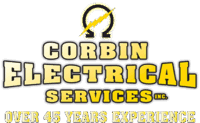 Choosing a generator for your home may seem like a complex process, but it’s actually fairly simple, relying on one central issue: How much power does your home need during a power outage? Most of today’s new homes are built with 200-amp service while older homes and some smaller homes may have 100-amp service. That’s a measurement of the maximum amount of electricity your home is able to consume at any given moment – the maximum load your home’s electrical system can support. But that doesn’t mean you need to draw that much power at all times. In fact, many homes never draw their maximum loads.
Choosing a generator for your home may seem like a complex process, but it’s actually fairly simple, relying on one central issue: How much power does your home need during a power outage? Most of today’s new homes are built with 200-amp service while older homes and some smaller homes may have 100-amp service. That’s a measurement of the maximum amount of electricity your home is able to consume at any given moment – the maximum load your home’s electrical system can support. But that doesn’t mean you need to draw that much power at all times. In fact, many homes never draw their maximum loads.
When it comes to choosing an automatic generator, you can choose one that matches you home’s maximum electrical load, but you can also select a less powerful model that will still provide plenty of power to run the appliances you need most during an outage. That’s important because more powerful generators are also more costly. For some homeowners, having a system that’s the same “size” as their home’s electrical system provides that extra peace of mind they need to eel truly secure. But for others, choosing a less powerful generator is one way to make installing a backup power system more affordable.
To choose the best standby generator for your home, think about past blackouts in your area: How long do they typically last? How often do they occur? And what appliances or devices did you miss the most while your power was out? For most of us living here in the Northeast, the heating and air conditioning systems are the most critical to keep up and running, followed by the refrigerator and lights, perhaps the microwave for meals and to heat water, and maybe the computer to keep up on news and weather. Some patients may use medical equipment which, of course, becomes a priority. In addition to thinking about past blackouts, it’s also important to consider “worst case” scenarios – what if you were without power for a week or more?
Based on those needs, you can determine the amount of power your appliances and devices need by looking at the manufacturer labels or by looking up your system information online at the manufacturer website. Add up the killowatts consumed by each item and you’ll have the basic amount of killowatts you’ll need (you should also add in additional killowatts to serve as a safety margin). Or you can use this great online tool from Generac to find the right home backup generator for you.
If you still have questions or need help determining the ideal sized generator for your home give us a call at (732) 536-0444 to schedule a free estimate. We’ve been in business since 1978 and can help homeowners just like you determine their needs so you get the right home backup power system at the price point that suits your budget. We can also help you select from a variety of leading generator models, including ones that can shift power from one circuit to another, letting you choose a less powerful system while still getting the peace of mind you need. And one more thing, do not let just anyone advise you on such an important purchase. You know, the pool store down the block that also sells generators on the side. Make sure you let trained and licensed electrical contractors like us assess your needs and provide you with the information you need to make an educated decision.


